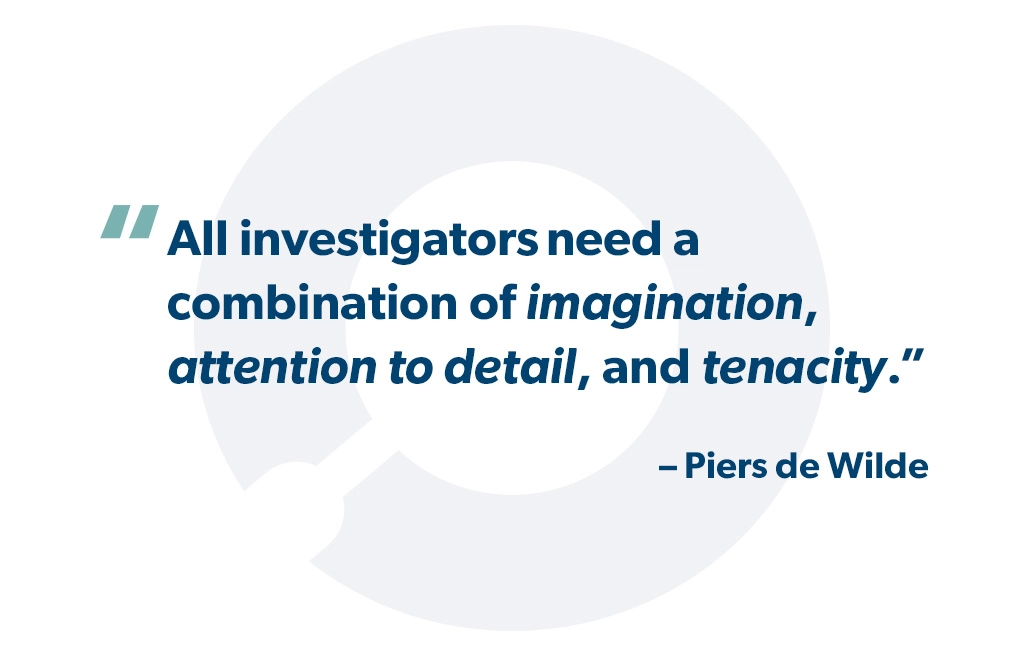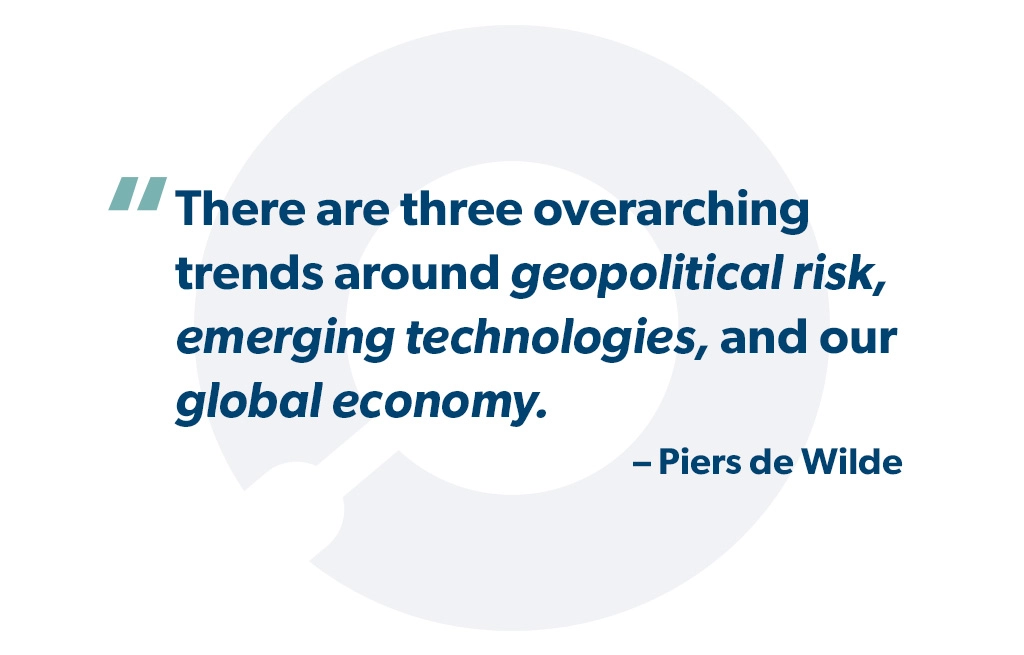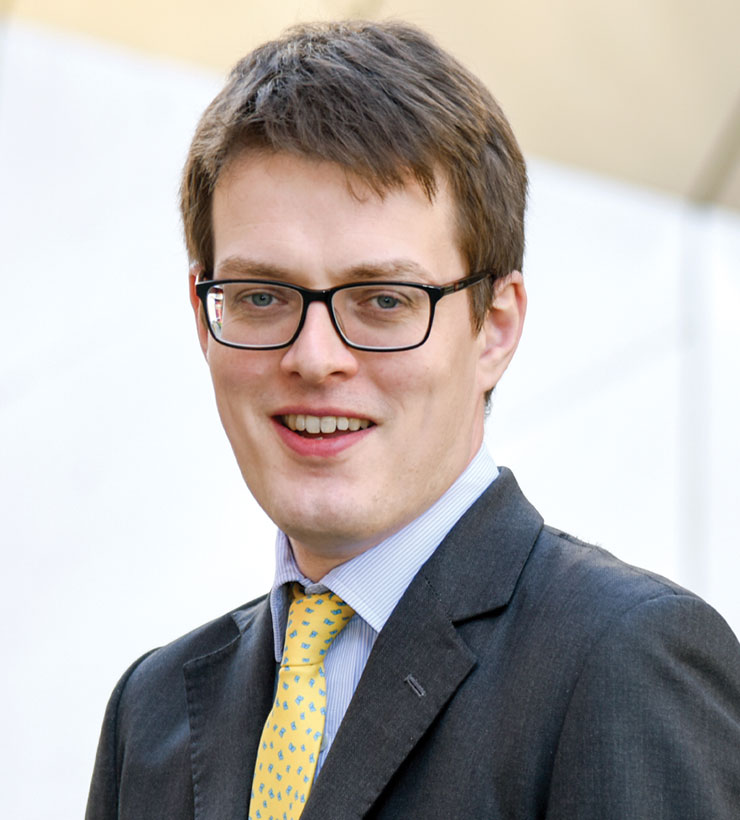To celebrate StoneTurn’s 20th Anniversary, we’re spotlighting our people. Meet Piers de Wilde, a Partner in London.
In this Q&A, Piers highlights the skillsets needed for the modern investigator. He also discusses the complexities and opportunities in cross-border investigations, trends in asset tracing work, and where he hopes to see StoneTurn in the future.
Culture
Can you share a case/ memory from StoneTurn that sticks out most to you as embodying our culture?
A case that sticks out to me the most is one that happened during the early days of the pandemic, when we were all suddenly having to work remotely. This was a multi-jurisdictional investigation, including London, New York, Asia, and South Africa. Despite dual pressure from counsel and our new working environment, we were able to lean on StoneTurn’s unique culture to work collaboratively toward a solution. Although we were in “lock down” and working from home, we did not experience a pause in the level of work we were delivering. StoneTurn has built trust within all levels of the company, and because of that, we were able to deliver great work to our clients.
What does entrepreneurship at StoneTurn mean to you?
Entrepreneurship means being given the opportunity to develop and grow a new business line with the support of the firm, not in an overly bureaucratic way but in a way that requires a degree of initiative and one that is supported by the wider company.
StoneTurn offers a platform for new levels of business by collaborating with old ones and that support makes that process more effective and pleasant—a “light touch” environment designed to support its professionals. For example, we’ve supported new hires to grow a certain area of the business in a measured way. This approach allows your own business line to grow more sustainably than at other firms.
Business
What are the critical skills for someone who wants to succeed in investigations?
All investigators need a combination of imagination, attention to detail and tenacity. These skills are united by an interest in the motivations of other people, the outside world, and the desire to follow stories through their conclusion. Crucially, another skill is realizing we work for commercial organizations. We need to support our clients’ objectives and so the ability to retain a commercial mindset is essential. Having a sense of proportion to define which steps need to be taken to support your client and develop an appropriate strategy is key to any investigation, whether it’s straightforward due diligence, complex asset trace, or supporting a private client on a security matter. By situating your investigatory work against the broader strategy, one can achieve the overall aims of the investigation—not simply executing a set of tasks in isolation.
What kind of trends do you see persisting or impacting asset tracing for the long term?
There are three overarching trends around geopolitical risk, emerging technologies, and our global economy.
Given the return of geopolitical risk and interstate conflicts in the Middle East and Eastern Europe, recovering assets from regions in conflict or ones in which the government is weakened or damaged will become more complex. Further to this point, the decoupling of certain countries and major economies from the west will lead to challenges for due diligence as it has in the past with a lock down of certain information in unfriendly jurisdictions.
Emerging technology will continue shaping asset tracing and due diligence and will likely help us look at data differently. This will not, however, change the underlying tenacity, attention to detail, and imagination needed in investigations. In fact, it will heighten the need for human intelligence in investigations—whether due diligence or asset tracing—as more and more individuals and entities are mindful of their online persona.
We’ve also seen an increasing trend for pre-litigation asset tracing to be used by private clients to understand the viability of their case given changes in litigation funding, particularly in the UK. Given the state of the global economy we expect clients to be increasingly active in pursuing claims to recover funds, particularly against non-performing loans. We expect to see the asset tracing environment respond to the effects of the global economy and we expect clients are being increasingly active in pursuing their claims to recover their funds.
Predictions for the Future
Where do you hope to see StoneTurn in 5 years?
I would hope to see StoneTurn expanding into new jurisdictions and further refining our service lines to best meet our clients’ needs—from traditional investigations to technology solutions to compliance work. There’s a lot we can offer.
For our people, I know we will continue to foster our culture of collaboration and sustainable growth, while retaining StoneTurn’s reputation as an extremely pleasant place to work, focused on both the firm’s commercial success and the wellbeing of its staff.
Reach out to Piers de Wilde if you would like to discuss any of the topics above.








